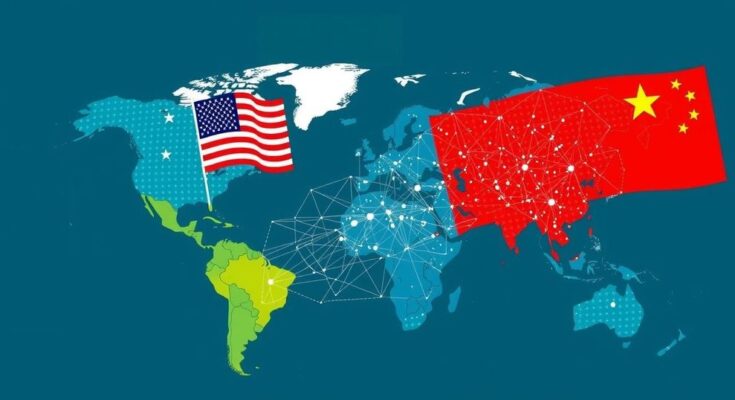At the latest COP climate gathering, frustrations with obstructive negotiators have emerged amid concerns over the US’s potential withdrawal under Trump. However, China’s unexpected cooperation and disclosure of significant climate funding could signify a pivotal shift, with China assuming a more proactive leadership role in climate discussions. Experts suggest that this reorientation may focus future dialogues on economic investments in renewable technologies rather than pure political claims.
The recent COP climate gathering has been met with skepticism and frustration among negotiators, who are expressing their dissatisfaction with the obstructive dynamics of the conference. Amid this turmoil, the potential for the United States to withdraw from the COP process under President-elect Donald Trump’s second term has added to the unease. However, observers are highlighting a notable shift with China appearing more cooperative and potentially assuming a leading role in climate negotiations.
Historically, China has navigated a dual role at these conferences, aligning with Western nations on certain aggressive climate goals while resisting pressure on others. Nonetheless, during this conference, the Chinese delegation showcased unprecedented openness regarding their climate funding, revealing they have allocated over $24 billion to developing nations for climate initiatives since 2016, marking a significant change in their approach. This cooperation may indicate a strategic recalibration as China steps into a vacuum left by the United States, leveraging its substantial investments in renewable technologies.
China’s emergence as a proactive player in global climate discussions could potentially reshape the COP landscape, traditionally dominated by Western powers. Experts suggest that while China may not lead like the United States, their influence may manifest in quiet negotiations behind the scenes to alleviate disputes and encourage ambitious climate action among developing and developed nations alike. However, their historical alliances with fossil fuel interests may pose challenges to consensus-building efforts.
Notably, the shifting economic priorities towards clean energy investments underscore the undercurrents that will likely dictate future negotiations, giving rise to a dialogue focused on innovation and economic viability rather than merely political posturing. Despite the current uncertainties, it is evident that the race for the clean energy market is vital and will likely influence participants regardless of leadership backdrops.
The current state of international climate talks has been severely impacted by the anticipated policies of President-elect Donald Trump, who has been vocally critical of climate initiatives. This context has placed additional pressure on negotiating teams as they attempt to navigate a complex landscape of obligations and expectations within the COP framework. China’s unexpected openness about its climate funding marks a potentially pivotal moment, as it shifts from a historically less transparent stance to one of overt cooperation, suggesting a redefining of roles among global powers in climate leadership.
The COP climate negotiations are at a crossroads, with the potential withdrawal of the United States leading to a realignment of responsibilities among nations. Should China continue to embrace a more collaborative approach while leveraging its renewable energy advancements, it could significantly influence global climate strategies moving forward. The dynamics at play could herald a shift in focus from political outputs to economic imperatives in addressing climate change.
Original Source: www.bbc.co.uk




